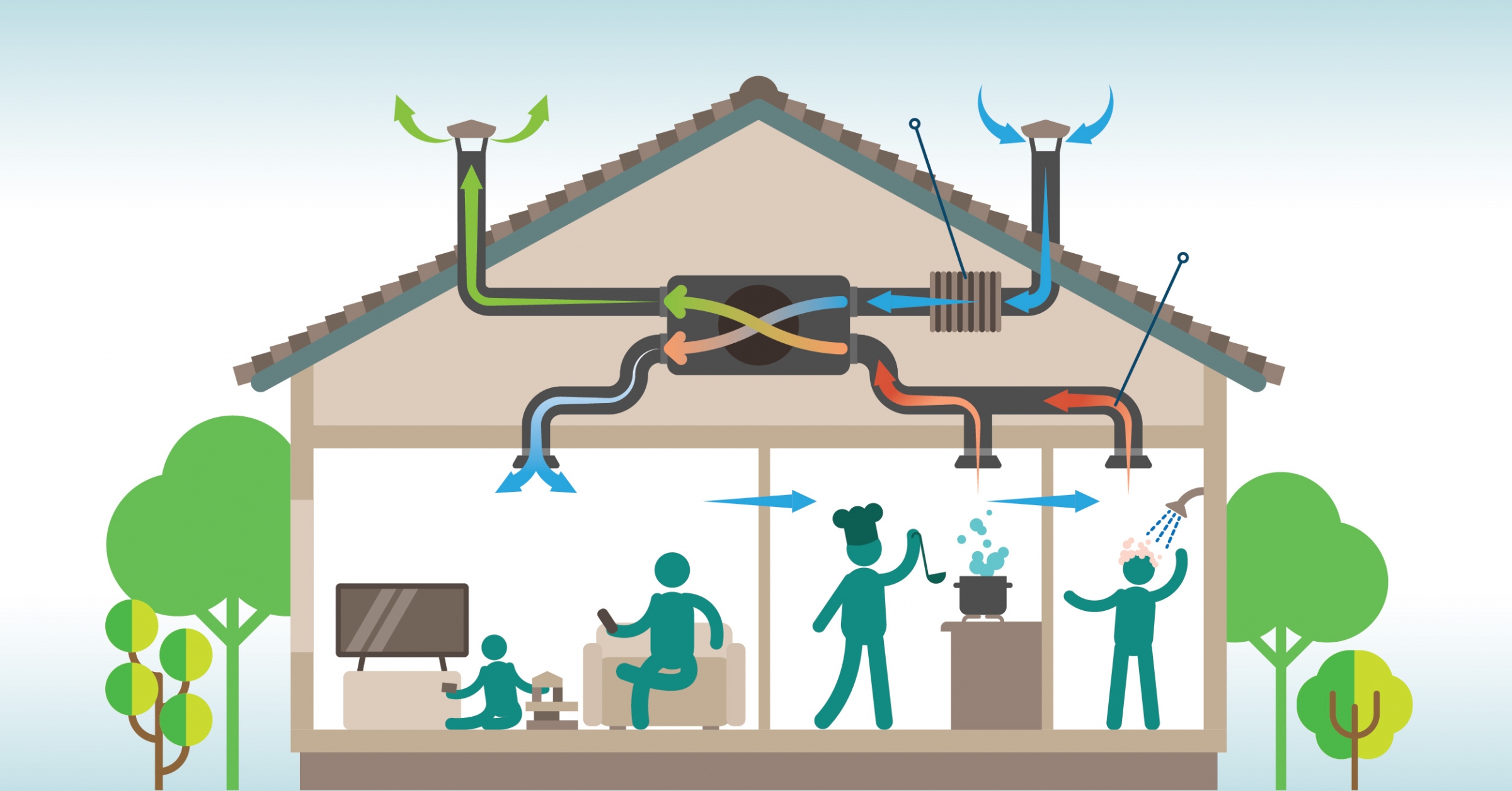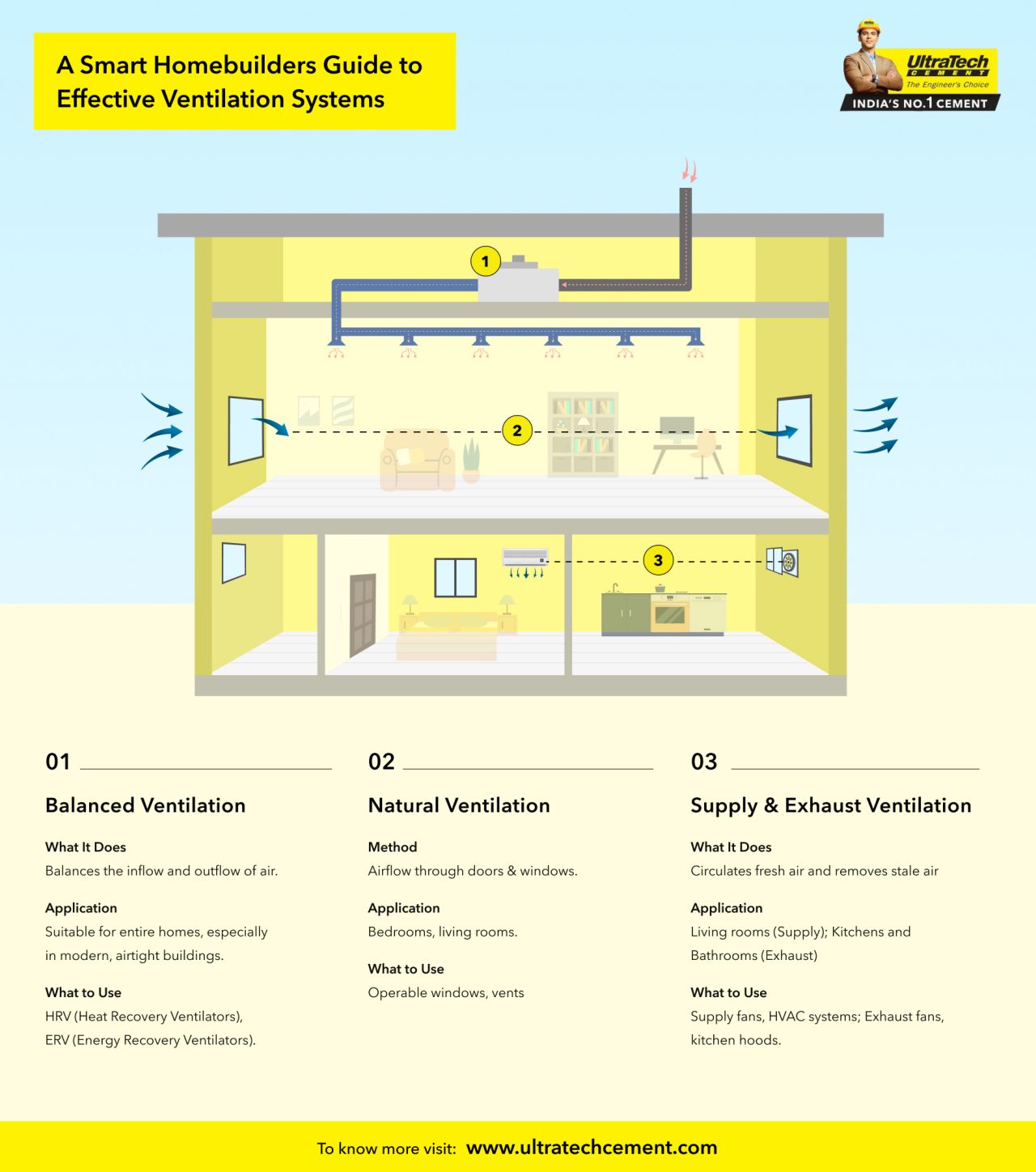Home Ventilation Melbourne: Best Practices for Year-Round Air Quality
The Role of Home Air Flow in Avoiding Mold And Mildew and Indoor Allergens
Home ventilation is a crucial part in preserving a healthy and balanced interior environment. It controls humidity levels, which can prevent the development of mold and mildew and the build-up of irritants. Numerous home owners neglect the relevance of proper air flow, frequently causing unseen problems. Recognizing how ventilation systems feature and their effect on air quality might be the trick to a healthier space. What actions can be required to improve these systems properly?
Understanding Home Ventilation Equipments
While many property owners might forget the importance of ventilation, comprehending home air flow systems is essential for keeping indoor air top quality and preventing mold growth - Home Ventilation Melbourne. These systems assist in the exchange of stagnant interior air with fresh exterior air, successfully lowering toxins and wetness degrees. Usual kinds include natural ventilation, which depends on wind and temperature differences, and mechanical air flow, which makes use of fans and ducts to manage air movement. Additionally, well balanced air flow systems incorporate both approaches to optimize air high quality. Effectively developed and maintained ventilation systems can aid manage temperature level and moisture, guaranteeing a comfy living environment. Home owners should think about factors like home design, environment, and tenancy when selecting a ventilation system to finest fit their needs and enhance general air top quality
The Effect of Humidity on Mold Growth
Moisture plays an important duty in mold and mildew growth, making it a crucial element for homeowners to monitor. Mold and mildew flourishes in environments where moisture degrees surpass 60%, as these problems supply the moisture necessary for spores to sprout and multiply. High moisture can result from numerous resources, consisting of bad ventilation, water leakages, and food preparation or showering activities. When humidity degrees remain elevated, mold and mildew can create rapidly on organic products such as timber, textile, and drywall. House owners need to utilize dehumidifiers and ensure correct ventilation in locations prone to wetness, such as basements and shower rooms. Maintaining interior humidity in between 30% and 50% can greatly decrease the danger of mold and mildew development, adding to a healthier living environment.
Identifying Typical Indoor Allergens
Indoor atmospheres can harbor a range of irritants that influence health and comfort. Typical interior irritants consist of dust mites, family pet dander, mold and mildew spores, and plant pollen. Allergen grow in bedding, carpetings, and furniture, preying on organic material and adding to respiratory concerns. Animal dander, composed of tiny flakes from skin and hair, can set off allergies in sensitive people. Mold spores, often existing in damp areas, can affect and proliferate air high quality. In addition, pollen can penetrate homes with open windows or on clothing. Recognizing these irritants is important for preserving a healthy interior setting. Recognition of their visibility enables property find this owners to take positive actions to minimize direct exposure and improve overall interior air top quality.
Advantages of Appropriate Air Flow
Correct air flow is essential for maintaining a healthy indoor setting, as it aids to regulate air top quality and reduce the buildup of pollutants. Adequate air movement helps with the exchange of outside and interior air, consequently diluting hazardous materials such as unpredictable organic compounds, irritants, and dust. This process not only enhances comfort but additionally contributes to the total well-being of owners by decreasing breathing issues (Home Ventilation Melbourne). Correct ventilation effectively regulates humidity internet degrees, decreasing the possibility of mold and mildew growth and promoting a drier setting conducive to health and wellness. Additionally, it can enhance power performance by making sure that heating and air conditioning systems operate better, bring about lower power costs. Generally, proper air flow is a vital component in promoting a healthy and risk-free living room

Tips for Improving Home Air Flow
Lots of house owners might ignore it, boosting home air flow is necessary for improving air high quality and stopping mold growth. One efficient technique is to on a regular basis open home windows to promote cross-ventilation, enabling fresh air to circulate. Installing exhaust followers in bathroom and kitchens can efficiently remove moisture-laden air, reducing moisture degrees. House owners must likewise consider using air cleansers with HEPA filters to catch allergens and pollutants. On a regular basis preserving cooling and heating systems, consisting of altering filters, assurances peak airflow and effectiveness. Sealing leaks around doors and windows can avoid outside air from entering, which assists maintain a regular interior setting. Finally, integrating houseplants can normally boost air quality while including visual worth to the home.
Regularly Asked Questions
How Often Should I Tidy My Home Air Flow System?
Establishing exactly how usually to clean up a home ventilation system depends upon different variables, consisting of usage and ecological conditions. Home Ventilation Melbourne. Typically, experts recommend an extensive cleansing every three to 5 years to preserve suitable air flow and effectiveness
Can Plant Kingdom Help In Reducing Indoor Allergens?
Research suggests that specific indoor plants may assist decrease allergens by boosting air quality and increasing moisture. However, their effectiveness varies, and keeping a tidy atmosphere stays vital for handling interior allergens effectively.
What Sorts Of Air Filters Are Finest for Mold And Mildew Avoidance?

Exist Particular Ventilation Needs for Basements?

Just how Do I Know if My Ventilation Is Functioning Effectively?
To figure out effective ventilation, one should keep an eye on humidity levels, inspect air movement through vents, and observe indicators of condensation or stagnant air. Routine analyses can show whether the system sufficiently distributes and exchanges interior air.
Recognizing just how air flow systems feature and their influence on air quality could be the key to a much healthier living room. While many homeowners may overlook the significance of ventilation, understanding home ventilation systems is important for maintaining indoor air quality and preventing mold growth. Common types consist of all-natural air flow, which depends on wind and temperature differences, and mechanical ventilation, which makes use of followers and air ducts to control air flow. Appropriate ventilation is vital for preserving a healthy indoor setting, as it assists to control air quality and reduce the build-up of contaminants. Numerous property owners may neglect it, improving home ventilation is crucial for boosting air high quality and avoiding mold development.